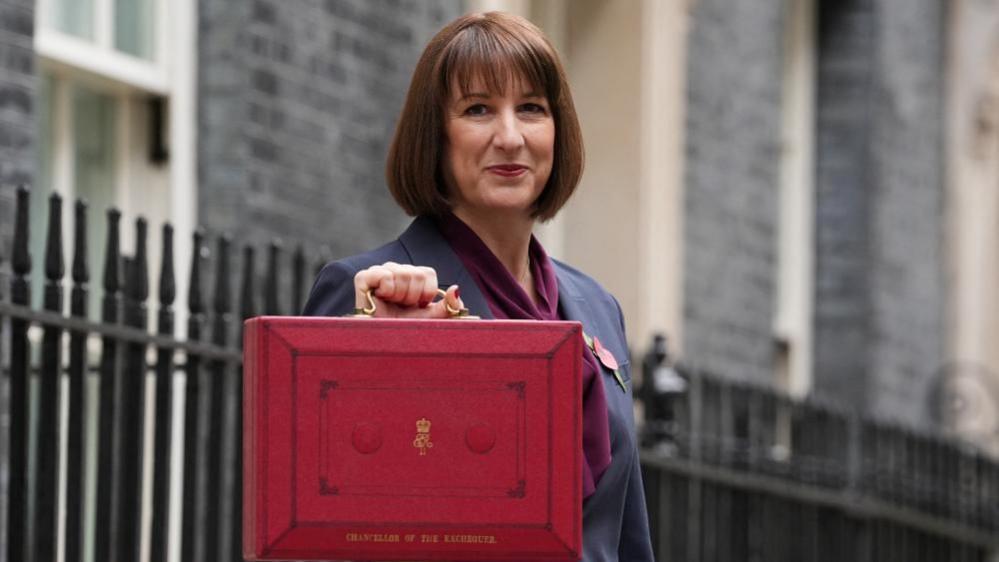Scotland to receive extra £3.4bn from UK Budget, says chancellor
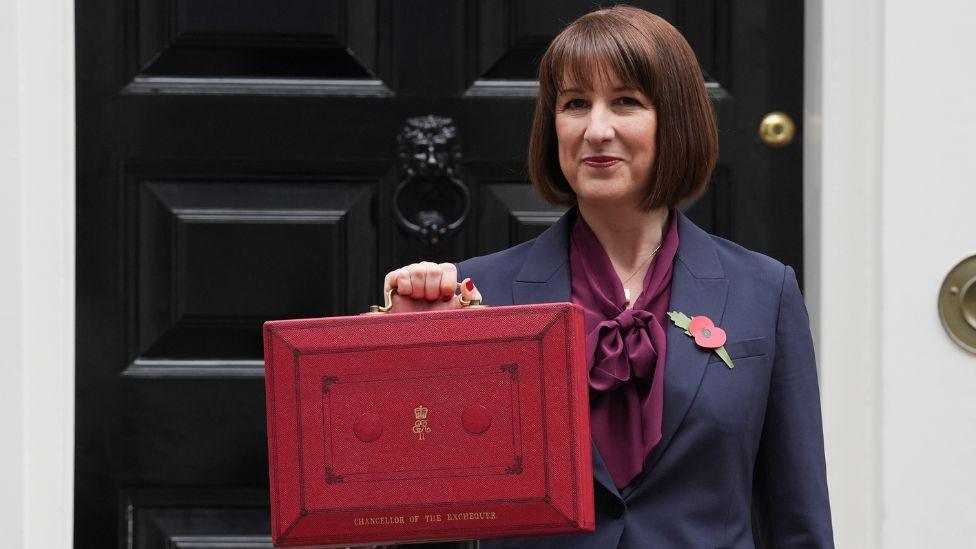
Rachel Reeves has announced the Labour UK government's first budget
- Published
Scotland will receive an additional £3.4bn in Treasury funding as a result of the UK government Budget, according to Chancellor Rachel Reeves.
Reeves, formally setting out her spending plans for the first time, said it would be the largest real-terms funding settlement since devolution.
Labour sources said the Scottish government would also receive an additional £1.5bn in the current financial year.
Scottish Finance Secretary Shona Robison said while the Budget was a "step in the right direction", her government was disappointed with aspects of the tax and spending plans.
Budget 2024: Key points at-a-glance
- Published30 October 2024
How the Budget will affect you and your money
- Published30 October 2024
She said any money gained by the Scottish government was expected to be offset by about £500m in increased public sector costs due to employers being asked to pay National Insurance contributions on workers' wages.
Robison also said the UK government should have U-turned on its winter fuel payment cut and scrapped the two-child benefit cap.
She added: “One Budget doesn’t change 14 years of austerity. That is going to take time and sustained investment in public services.”
The SNP government has already cut £500m from its budget this year, with ministers warning that without extra cash they would need to make difficult choices when they set out their tax and spending plans for next year in December.
Reeves said the funding announced in the Budget "must be used effectively in Scotland to deliver the public services that the people of Scotland deserve".
While some of the measures included in the Chancellor's Budget apply directly to Scotland, others do not.
However, spending decisions in areas that are devolved to the Scottish government, and that will only apply south of the border, have a knock-on effect for the Holyrood administration’s finances through what is known as the Barnett Formula.
The Scottish government gets a fixed share of changes to budgets of Westminster departments such as transport, justice, health and education – areas of government devolved to Holyrood – as part of its funding arrangement with the UK Treasury.
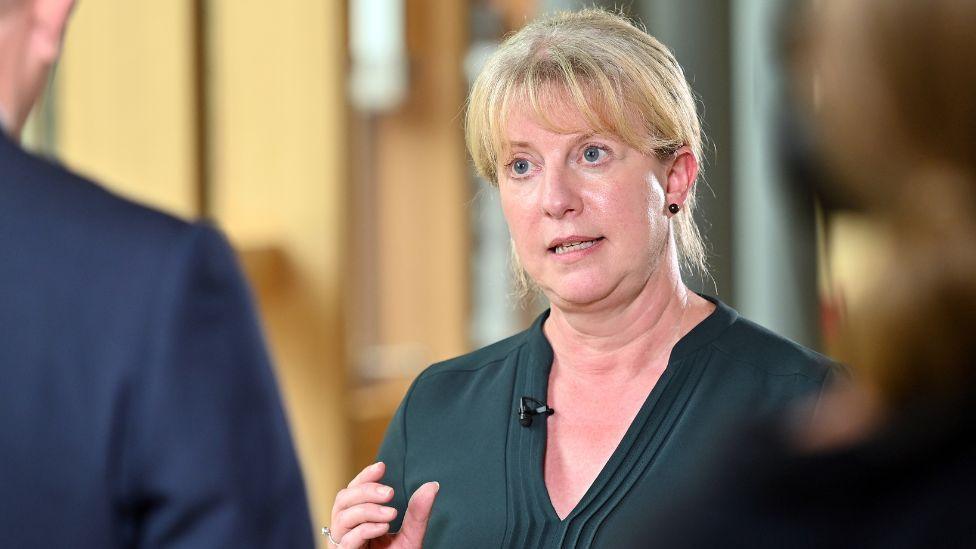
Scottish Finance Secretary Shona Robison said the Budget was a "step in the right direction"
Among the key issues that affect Scotland is an increase in minimum wages, with hourly rates for over-21s set to rise from £11.44 to £12.21 an hour from April.
The rate for 18 to 20-year-olds will increase from £8.60 to £10, while the minimum wage for apprentices will rise from £6.40 to £7.55.
The chancellor also confirmed a windfall tax the UK government levies on the profits made by oil and gas firms will rise from 38% from 35% on 1 November, and will remain in place until 2030.
North sea oil and gas firms had campaigned against the increase.
The chancellor also announced:
A 5p cut to fuel duty on petrol and diesel, due to end in April 2025, will be kept for another year
Employers are to pay National Insurance on workers’ earnings above £5,000 from April, down from £9,100 currently, with the rate increasing from 13.8% to 15%
Employment allowance - which allows companies to reduce their NI liability - is to increase from £5,000 to £10,500
The main rate of corporation tax, paid by businesses on taxable profits over £250,000, is to remain at 25% until the next election
Tax on non-draught alcoholic drinks - including whisky - is to increase by the higher RPI measure of inflation, but tax on draught drinks is to be cut by 1.7%
Capital gains tax paid on profits from selling shares to increase from up to 20% to up to 24% - with rates on additional property sales to stay the same
Freeze on inheritance tax thresholds extended beyond 2028 to 2030
The £70m rural growth deal for Argyll and Bute will progress following a spending review
Funding for a green hydrogen project in East Renfrewshire
Plans to levy VAT on private school fees will raise more than £9bn across the UK
Perth and Kinross Council said £5m pledged to it for city centre regeneration under the previous UK government had been withdrawn as part of the Budget.
The "levelling up" funds had been earmarked for a new visitor attraction, offices and retail units.
Council leader Grant Laing described the decision as "extremely disappointing".
Reeves said the government would "restore stability to our country" and "protect working people".
The chancellor added the Labour administration was "fixing the foundations of our economy, investing in our future, delivering change, rebuilding Britain".
SNP Westminster leader Stephen Flynn welcomed additional funding for public services, but said the Budget “fails to deliver the transformative change people in Scotland were promised”.
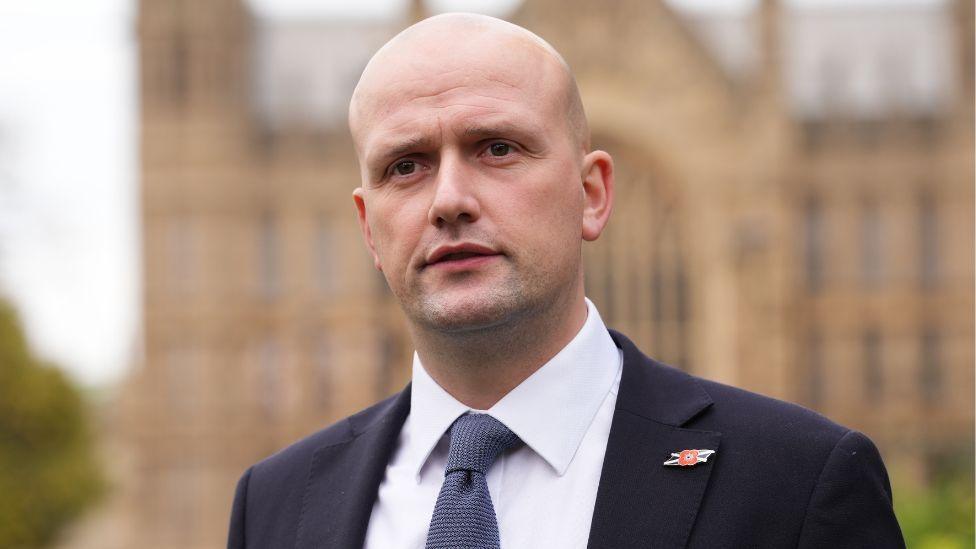
Stephen Flynn said the UK government had failed to "turn the page"
Scottish Conservative leader Russell Findlay said: "Labour’s tax-raising budget is straight out of the SNP playbook and will terrify hard-working Scots."
João Sousa, deputy director at the Fraser of Allander Institute, an independent think tank, said the UK Budget was “likely to make the Scottish government’s job of balancing its budget significantly easier" thanks to a £1.5bn increase in funding in 2024-25.
However, he said several hundred million pounds of the £3.4bn increase next year would be swallowed up by higher costs for public sector employers being asked to pay National Insurance contributions.
About 600,000 people are employed in Scotland’s public sector, making up 22% of the total workforce – compared to about 17% in the UK as a whole.
Mr Sousa added: “So even though it’s a significant amount, it’s a bit less than would initially appear.”
'Hammer blow'
As well as an increase in the tax rate on oil and gas producer profits, the Budget reduced the tax allowances companies can claim, which act as an incentive to keep investing.
David Whitehouse, chief executive of Offshore Energies UK, said it was a “difficult day” for the industry.
Scotch Whisky Association chief executive Mark Kent described the increase on spirits duty as a “hammer blow”.
The levy was increased by 10% by the previous UK government, and industry bosses had been hoping for a reprieve.
Mr Kent accused Reeves of increasing “tax discrimination of spirits in the Treasury’s warped duty system, and with 70% of UK spirits produced in Scotland, that will do further damage to a key Scottish sector”.
Scottish Secretary Ian Murray defended the alcohol duty rise, telling journalists: "The inflationary increase is the right thing to do in these particular circumstances."
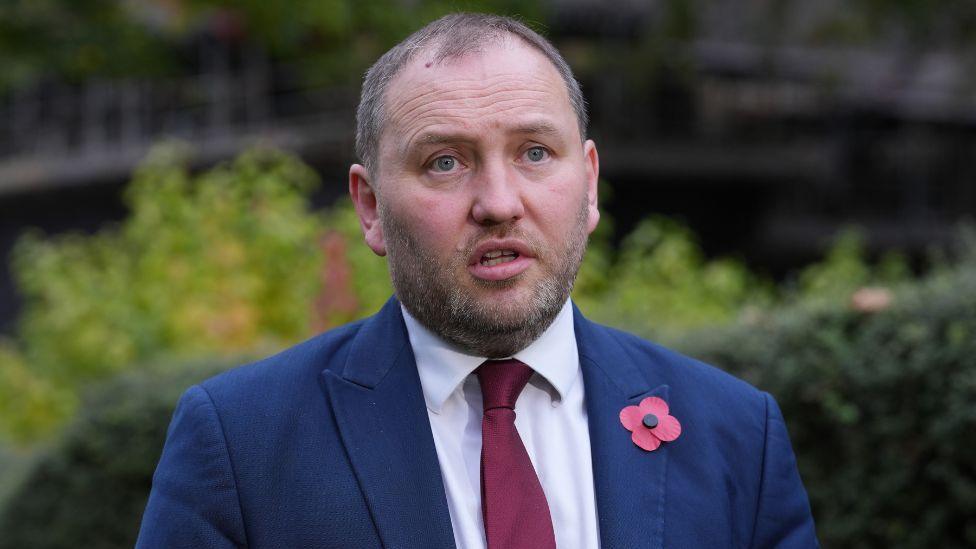
Scottish Secretary Ian Murray defended the UK government's tax and spending plans
He said that there was an additional £750,000 for the Scotland Office budget to "promote Brand Scotland" adding that the Scotch whisky industry will "be a key part of that".
John Dickie, director of the Child Poverty Action Group in Scotland, welcomed greater protections for Universal Credit claimants threatened with deductions due to debt.
However, he said the Budget “missed a golden chance to scrap the two-child limit, a policy that will pull 16,000 extra children into poverty by the time the government’s child poverty taskforce reports in spring”.
MPs will spend several days debating the UK government's plans, before being asked to approve them in the form of a finance bill.
The announcement informs the Scottish government - which is due to announce its budget on 4 December - how much it can expect to receive 2025-26.
Related topics
- Published30 October 2024
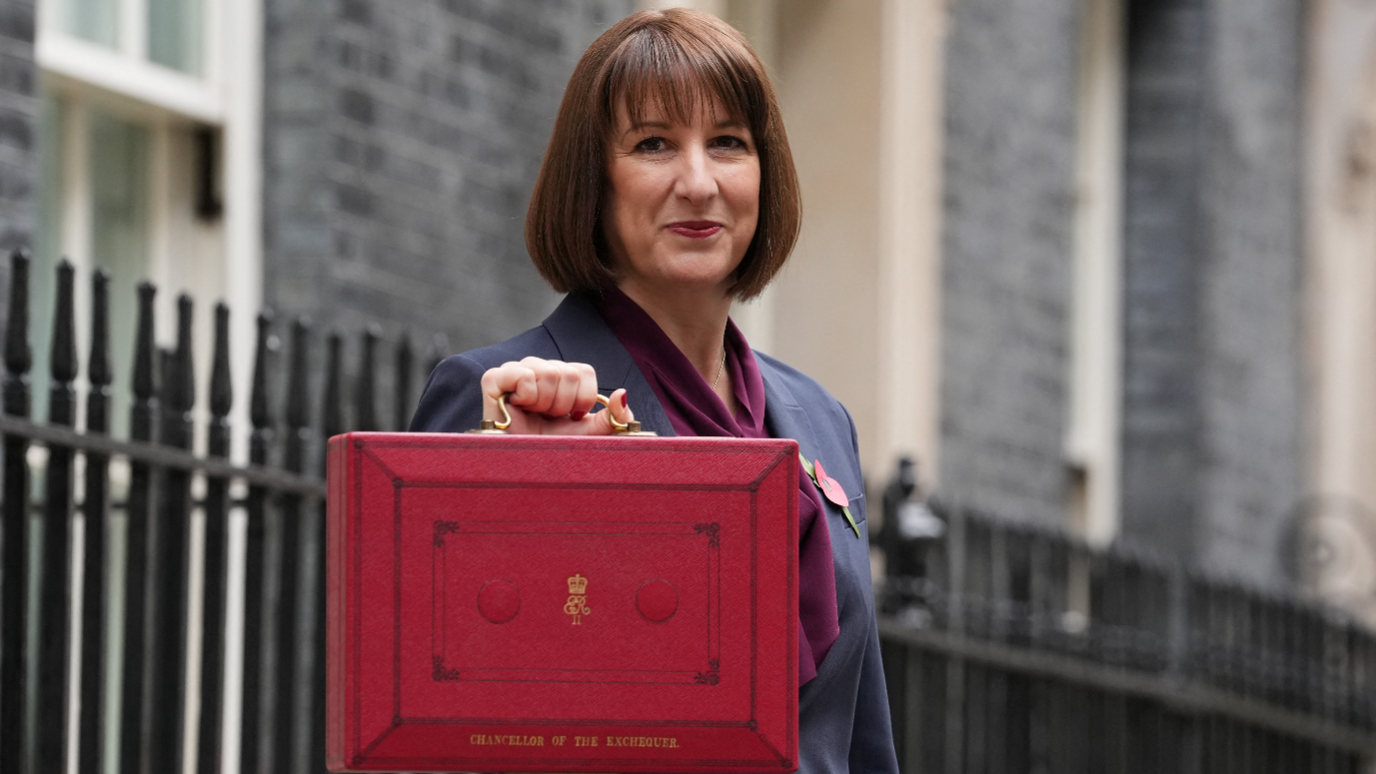
- Published30 October 2024

